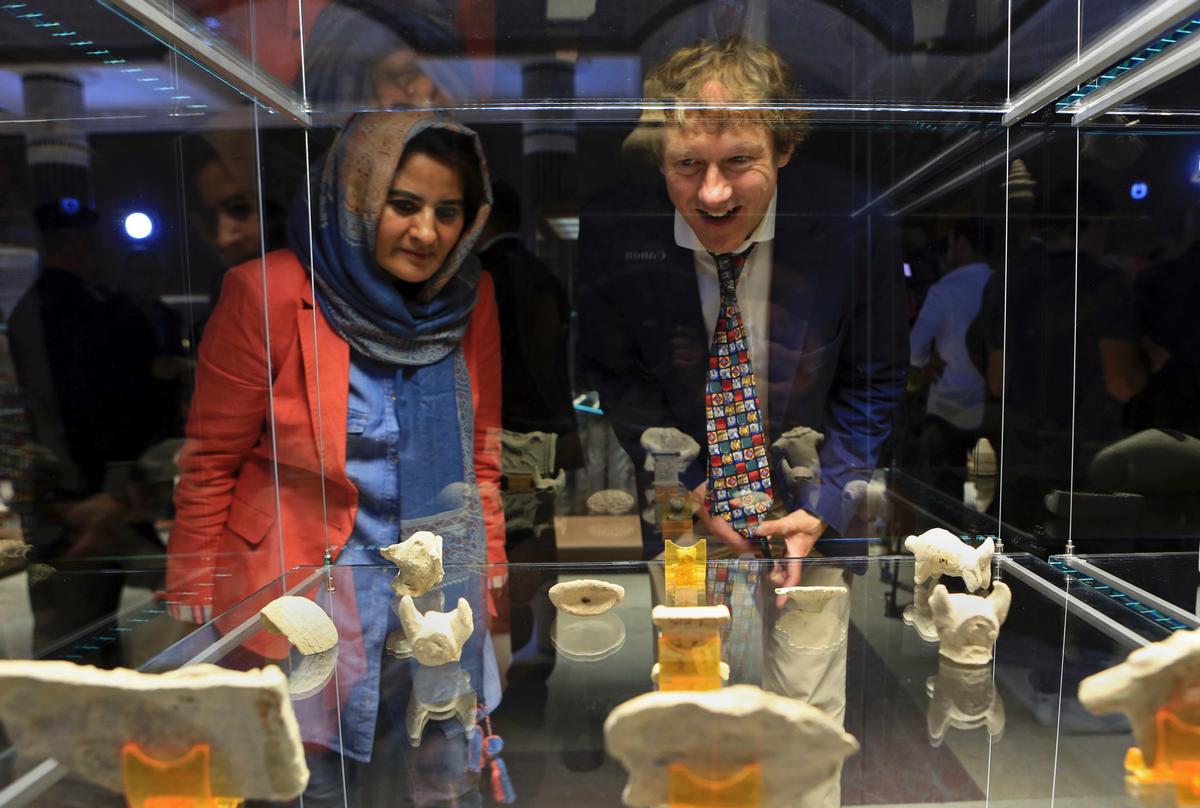see all jobs
Saddam Hussein's former palace opens as antiquities museum
The palace of former Iraqi dictator Saddam Hussein has been given a new purpose, with Iraq’s government turning the former stronghold into the country’s first first new major museum since its occupation in 2003.
Funded through UK-based charity Friends of Basra Museum and oil company donations, the former home of Hussein in Basra has now become the home of Iraq’s national antiquities museum, with ancient pottery, coins and other artefacts now on public display.
The project was initially allocated US$3.5m (€3.1m, £2.7m) for the development, but those funds failed to materialise. Friends of Basra Museum raised the lion’s share of the US$750,000 (€668,000, £577,000) used to initially open one hall, which is showcasing a collection of antiquities dating back to 400 BC.
The institution says it hopes to unveil three more sections as originally planned. These would be developed in the coming years and would focus on the Sumer, Babylon and Assyria periods, with projected costs of US$585,000 (€521,000, £450,000).
The museum has also received partial funding from oil giant BP, as well as the British Museum, which has provided curatorial support since 2008.
Following Hussein’s capture in late 2003, the palace was used as a mess hall for the British army. In 2010, the palace was handed over to Iraq’s State Board of Antiquities when the plan for a culture hub was devised.
Once fully-operational, the palace will hold around 4,000 works, many of which will come from Baghdad’s semi-operational Iraq Museum.
The palace has suffered significant damage from car bombings since the US occupation of Iraq, so safety is at the heart of the redevelopment with steel doors installed at the entrance for extra security, while money is also going towards further repairs and curatorial support.
Qahtan al-Abeed, director of Iraq’s State Board of Antiquities and Heritage for Basra, said in April that long-term plans for the palace would be to establish a heritage area with hotels and restaurants and a heritage museum. According to al-Abeed, this plan would be implemented over the course of the next 15-20 years.
“Most people from Basra came here recently from the countryside, and they have no idea of culture. You have to first lay the foundation. And I want to help my country,” he said.
More News
- News by sector (all)
- All news
- Fitness
- Personal trainer
- Sport
- Spa
- Swimming
- Hospitality
- Entertainment & Gaming
- Commercial Leisure
- Property
- Architecture
- Design
- Tourism
- Travel
- Attractions
- Theme & Water Parks
- Arts & Culture
- Heritage & Museums
- Parks & Countryside
- Sales & Marketing
- Public Sector
- Training
- People
- Executive
- Apprenticeships
- Suppliers
















































